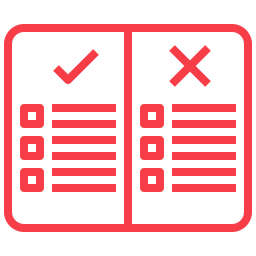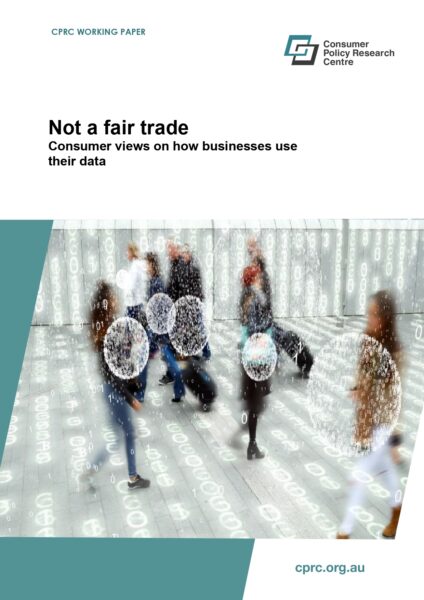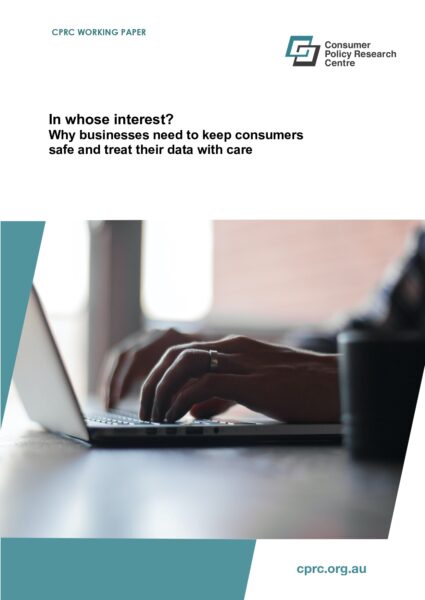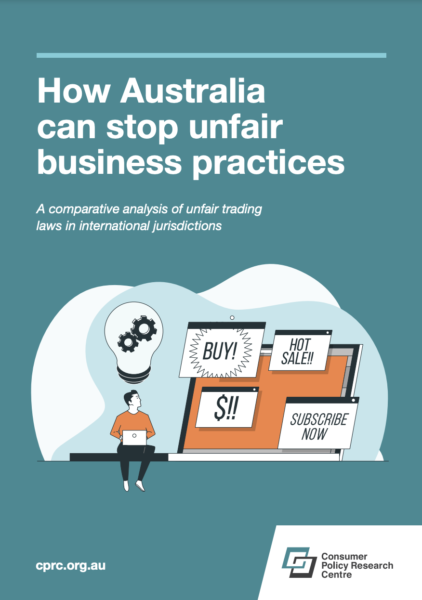Businesses are using a range of vague and difficult terms in their privacy policies to describe how consumer data can be sold or used by others.
This joint CPRC and the UNSW Sydney report:
This report features insights from a nationally representative survey of n=1,000 Australians.






Only ‘personal information’ is defined in law, but it is limited in its scope. There are no standard definitions in Australia for the following terms:






were unfamiliar or didn’t understand ‘pseudonymised information’

were unfamiliar or didn’t understand ‘hashed email address’

were unfamiliar or didn’t understand ‘advertising ID’

More than 50% are unaware that pieces of information are used to single them out.
It can be as high as 70% of consumers who are unaware of terms such as ‘pseudonymised information’ that are used to single them out.
72% believe they have little to no control over the information collected by businesses with which they have no direct interaction.
71% believe they possess little to no control over businesses sharing their personal information with other entities.






This is a joint report with CPRC and UNSW Sydney.
Learn more about UNSW Sydney at UNSW.edu.au

March 29, 2023
This working paper explores consumer sentiment on privacy practices and protections. CPRC conducted a nationally representative survey of 1,000 Australians on their views on how personal information is collected, shared and used by businesses.

March 16, 2023
Australia’s privacy laws rely on notification and consent as the primary means of protecting consumers. The onus is on consumers to navigate complex privacy protections in a continuously complex digital economy. It is time to consider reforms that hold businesses accountable for how they collect, share and use consumer data. It is time to give regulators the power to pause and assess data practices that are causing or likely to cause consumer harm.

September 27, 2022
Unfair business practices cause consumer harm but currently, there’s a gap in our laws to effectively protect Australian consumers.